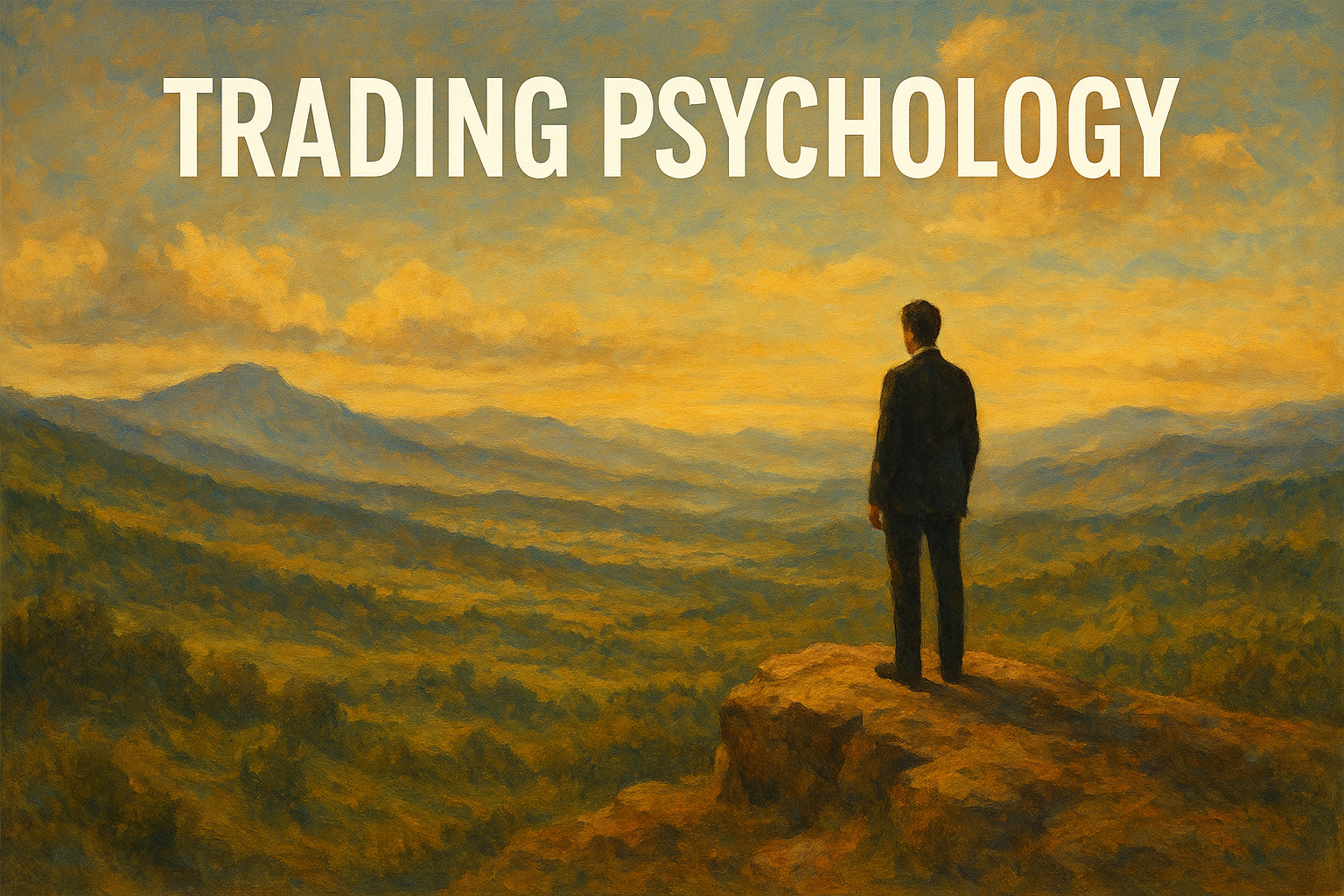Introduction
If you’ve traded currencies for any length of time you know the charts move fast, sometimes so fast you barely have time to think. Everyone tells you to master technical indicators, read the news, study fundamentals, backtest strategies—and sure, all of that matters. But the one thing that consistently separates traders who last from traders who blow up accounts is the psychology side of it. It’s your head, your emotions, your ability to stay calm when the market is screaming at you.
Most beginners don’t want to hear that. They want the “perfect entry system.” But let’s be honest, how many times have you had the right setup, only to close early because of fear, or held too long because of greed, or froze because of doubt? That’s psychology at work.
What is Forex Trading Psychology?
So what exactly is Forex trading psychology? It’s simply the mental and emotional state you’re in when you make decisions. Fear, greed, confidence, anxiety—they all play a role. And no amount of technical knowledge can fully cancel them out. You can either learn to manage them, or you let them manage you.
Think About Fear First
Think about fear first. Fear is probably the biggest account killer out there. You get into a trade and as soon as the candle goes slightly red you slam the close button, only to watch price bounce in your original direction. Or maybe you’ve seen a perfect setup but you don’t take it because you’re still scarred from yesterday’s loss. That’s fear in action.
Then There’s Greed
Then there’s greed. This one creeps in after a couple of wins. You start thinking, “I’ll just hold it a little longer,” and of course that’s the exact moment the market reverses and wipes out your gains. Greed convinces you to overtrade too—more trades, bigger positions, chasing the high of the win.
Hope is Another Dangerous One
Hope is another dangerous one. Traders cling to losing positions because they hope the market will turn around. Sometimes it does, but most of the time it doesn’t. Hope keeps you in bad trades way longer than you should be.
And Then There’s Overconfidence
And then there’s overconfidence. A winning streak makes you feel untouchable. You double your lot size, maybe even break your own rules, because you “can’t lose now.” Spoiler: you can, and the market usually teaches that lesson fast.
The Only Antidote is Discipline
The only antidote to all this is discipline. You need a plan and you need to stick to it. Not sometimes, not when it feels good—every time. Set clear goals for yourself. Have rules for when you enter, when you exit, and how much you risk. The best traders in the world risk tiny portions of their capital per trade—1% or 2%—because survival is more important than hitting home runs. Trading is not about one lucky win, it’s about still being in the game ten years from now.
Tools to Keep Your Emotions in Check
Now here’s where it gets tricky. It’s easy to talk about discipline, much harder to practice it when money is on the line. That’s why you need tools to keep your emotions in check. A trading journal helps a lot. Write down not just your trades but how you felt during them. Over time you’ll notice patterns—maybe you overtrade after losing, or you get reckless after winning.
Mindfulness helps too. Sounds cliché, but taking a few minutes to breathe before trading clears your head. Trading on stress or adrenaline usually ends badly. Visualization works in a similar way. Before you place a trade, imagine both scenarios: what if it wins, what if it loses? Being mentally prepared makes the result easier to accept.
Volatility and How to Handle It
And then there’s volatility. Forex is one of the most volatile markets out there and that volatility plays games with your mind. The best way to handle volatility is by being prepared. Stay on top of news, central bank decisions, and economic reports. If we know what’s coming, we won’t panic as much when the market reacts. Use indicators to keep yourself objective let data guide you instead of gut feelings. And most importantly, accept losses. They’re part of the job. Even the best traders lose, so stop treating every red trade like a personal failure.
The Importance of a Support System
Honestly, one thing most traders don’t even think about is having a support system. Trading can get crazy lonely. You’re just sitting there staring at charts for hours, overthinking every little move, and after a while it messes with your head. I found that just talking to other traders even if it’s some random discord group or a couple of friends who trade helps keep me grounded. Sometimes it’s not even about strategies, it’s just knowing you are not the only one in this emotional turmoil.
Mastering Trading Psychology Doesn’t Mean Becoming Emotionless
And mastering trading psychology doesn’t mean you turn into some cold, emotionless person with zero feelings. That’s not realistic. You’ll still feel fear, greed, frustration—it’s normal. The key is catching yourself before those feelings start running your trades. Know your triggers, keep track of what sets you off, review your trades honestly, and just be patient with yourself. The money comes when you stick to the process, not when you chase it. Also, don’t underestimate life outside the charts. Go to the gym, hang out with friends, take a break. When your head’s in a good place, your trading usually follows.
Final Thoughts
The truth is, trading success is rarely about having the fanciest strategy. It’s about having the strongest mind. Once you understand that, the game changes.
